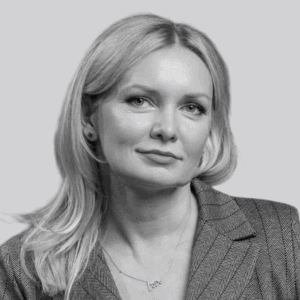

The personal income tax rates applicable to citizens’ income depend on their tax status, which is determined based on the number of days spent residing in the Russian Federation (RF).
However, there are exceptions. Some types of income received from Russian employers are taxed at the regular rates (13% and 15%) even if the individual has lost the status of a “tax resident” of the RF. These types of income include:
Therefore, if, for example, a foreign worker is an HQS with a remote work arrangement, their income received from their employer (including for work functions performed outside the territory of the RF) is taxed at the regular rate of 13% and 15%. The loss of their tax status due to prolonged absence from the RF does not affect these rates.
At the same time, if this individual receives other types of income (i.e., income not related to employment, such as income from renting/selling property located in the RF), the NDFL rate will directly depend on their tax status. For citizens who have lost the status of “tax resident” of the RF, the rate will be 30% (or 15% if the income is in the form of dividends).
It should be noted that a tax resident of the RF is a person who is physically present on the territory of the RF for at least 183 days during 12 consecutive months. The final status is determined at the end of the calendar year.
Additionally, according to paragraph 2 of Article 207 of the Tax Code of the RF, the period of a physical person’s stay in the RF is not interrupted by periods of absence for short-term (less than six months) treatment or education outside the territory of the RF.
Thus, periods of a physical person’s absence from Russia for short-term (less than six months) treatment or education are effectively counted as days of stay in Russia.
Since 2023, the procedure for calculating social insurance contributions from payments to foreign workers has been changed. According to the new procedure, social insurance contributions for foreign workers temporarily staying, temporarily and permanently residing on the territory of the RF are calculated in the same manner as for Russian citizens.
However, there is an exception – foreign workers temporarily staying on the territory of the RF and having HQS status. For this category of workers, social insurance contributions to the pension fund (OPS), health insurance (OMS), and insurance against work-related accidents (VNiM) are not calculated.
At the same time, if an HQS has dual citizenship, one of which is Russian, their income is subject to social insurance contributions in the generally established manner. This is because individuals with dual citizenship are not subject to the restrictions or additional obligations established for foreign citizens. Such a person does not meet the definition of a “foreign citizen,” as a foreign citizen is defined as a person who is not a citizen of the Russian Federation and holds citizenship of a foreign state (Article 11 of the Tax Code of the RF, paragraph 7 of part 1 of Article 4 of Federal Law No. 138-FZ “On Citizenship of the Russian Federation” of April 28, 2023, Article 2 of Federal Law No. 115-FZ “On the Legal Status of Foreign Citizens in the Russian Federation” of July 25, 2002).
Your application has been successfully accepted.
We will contact you shortly.
We have sent an email to your email, please confirm your subscription by clicking on the link in the email.

